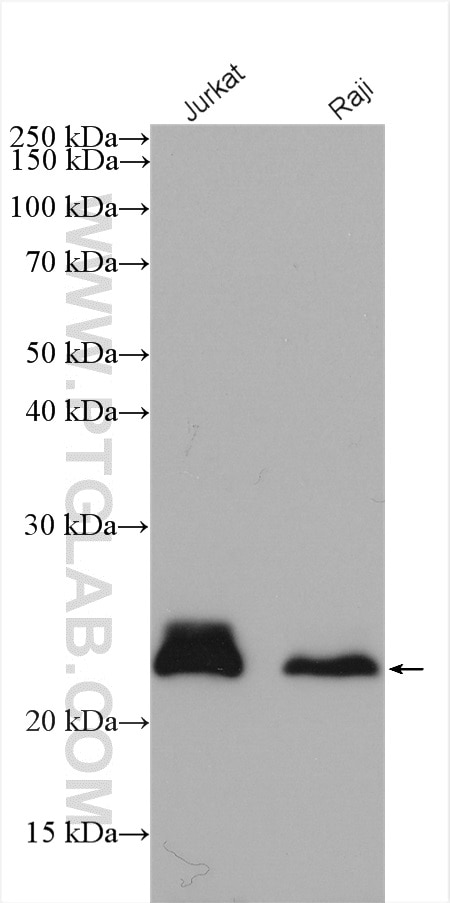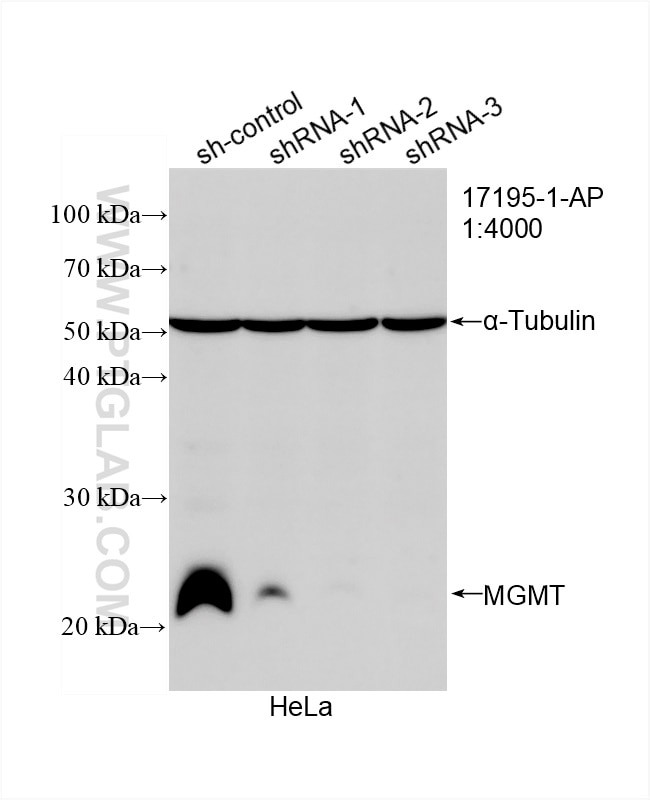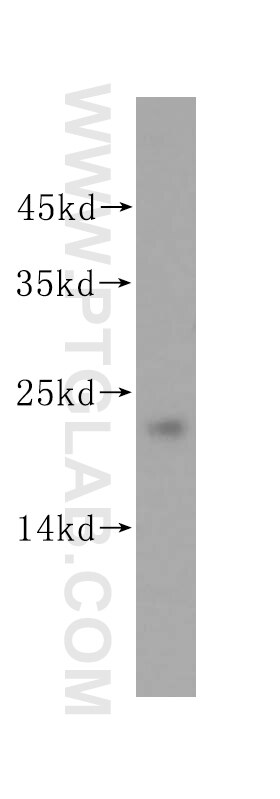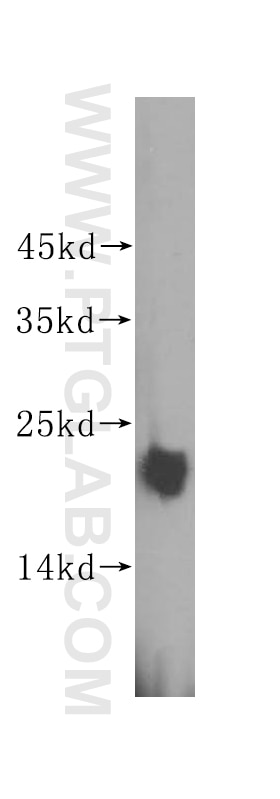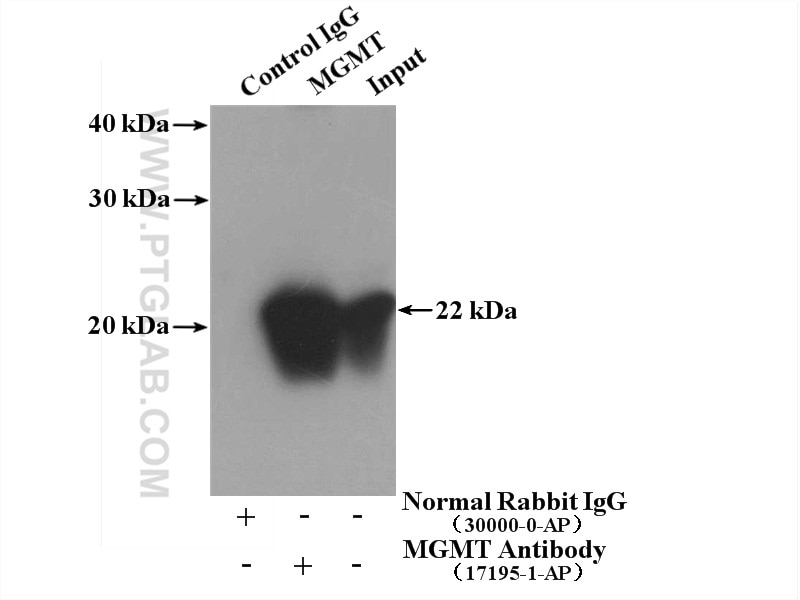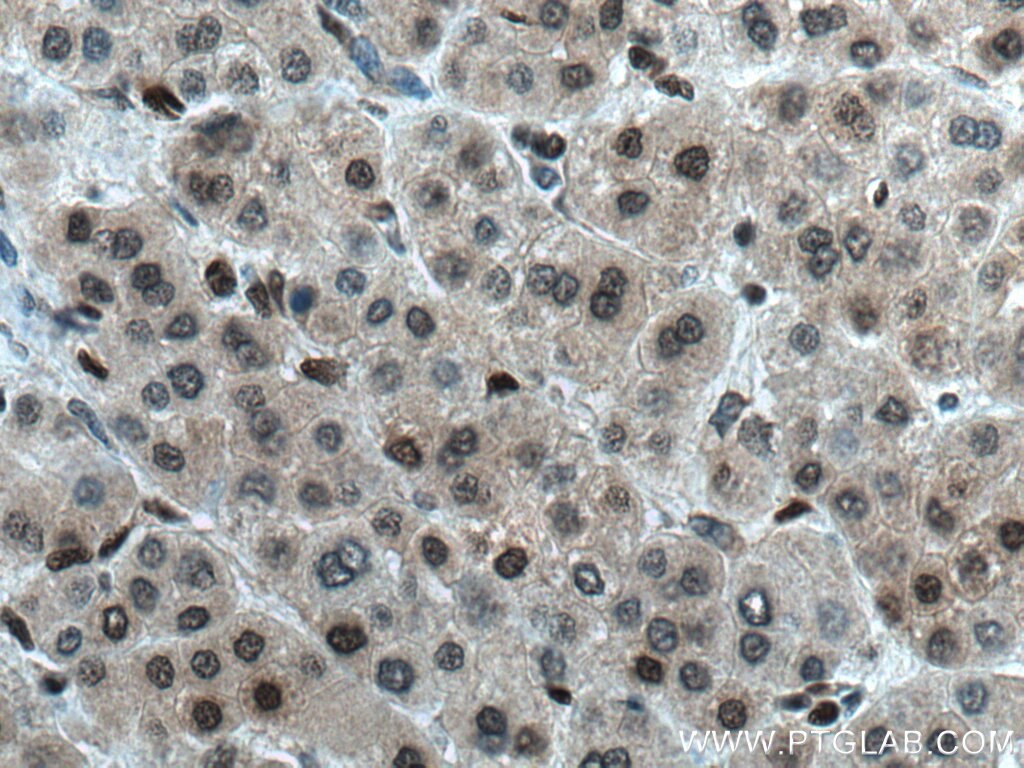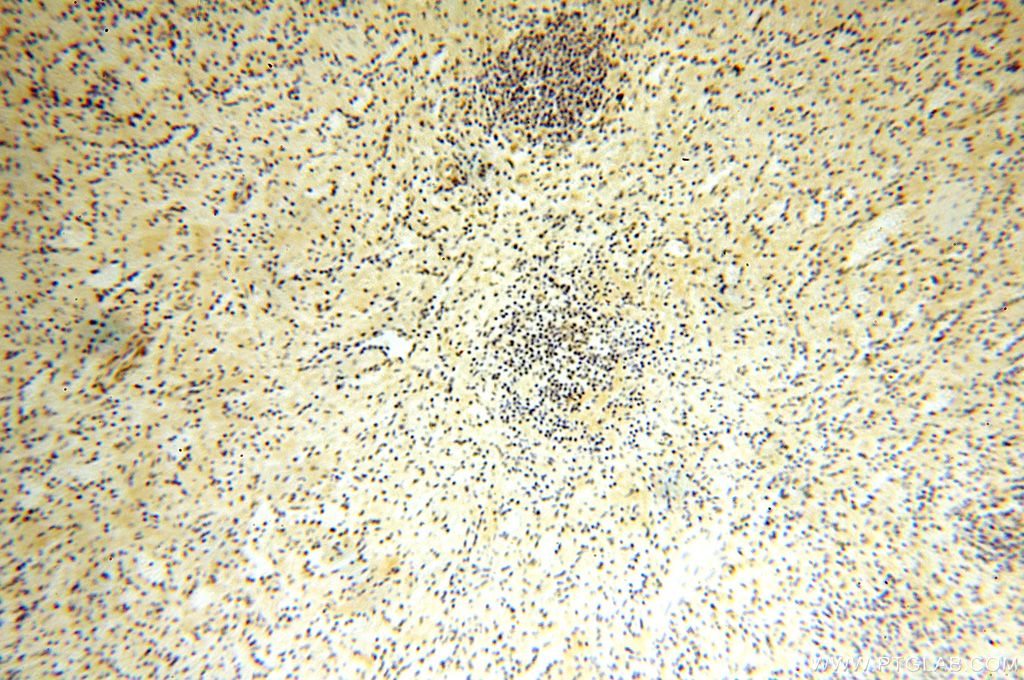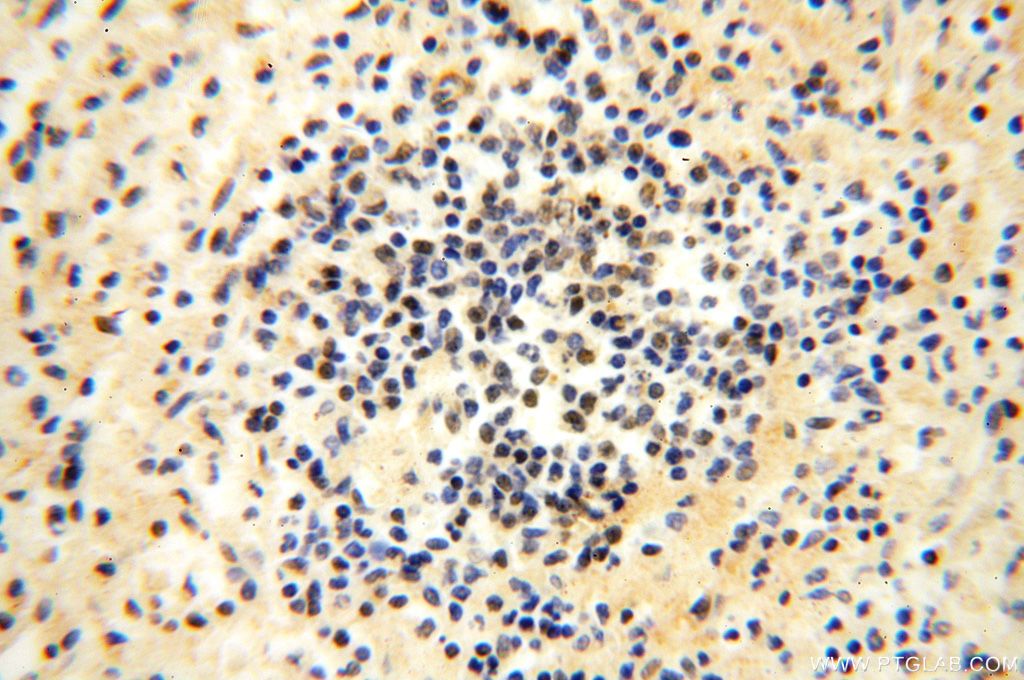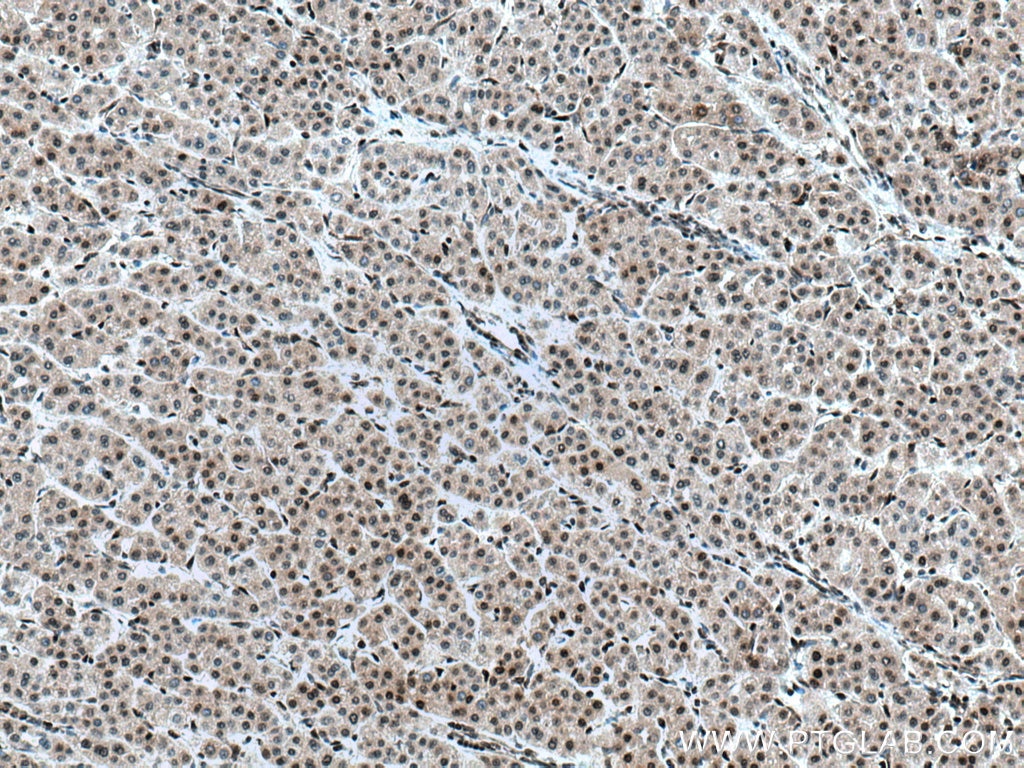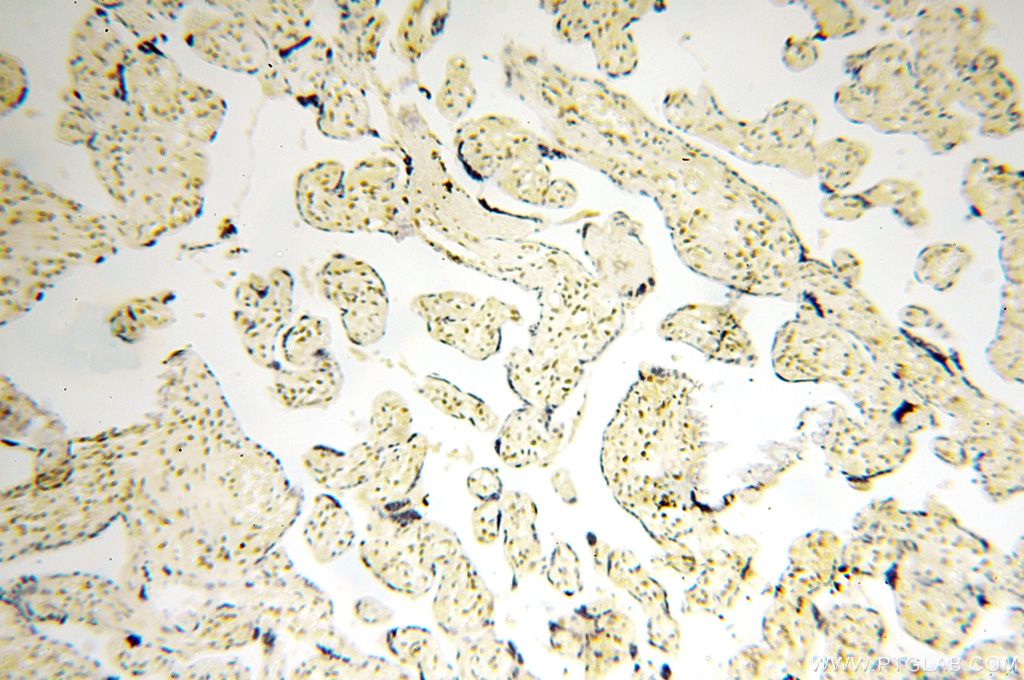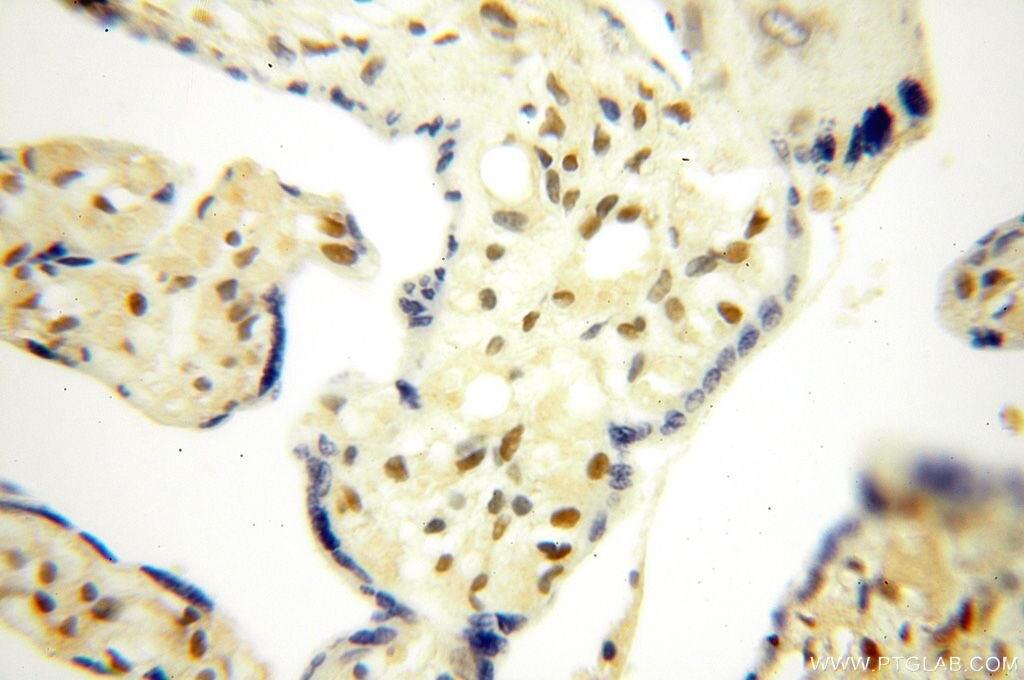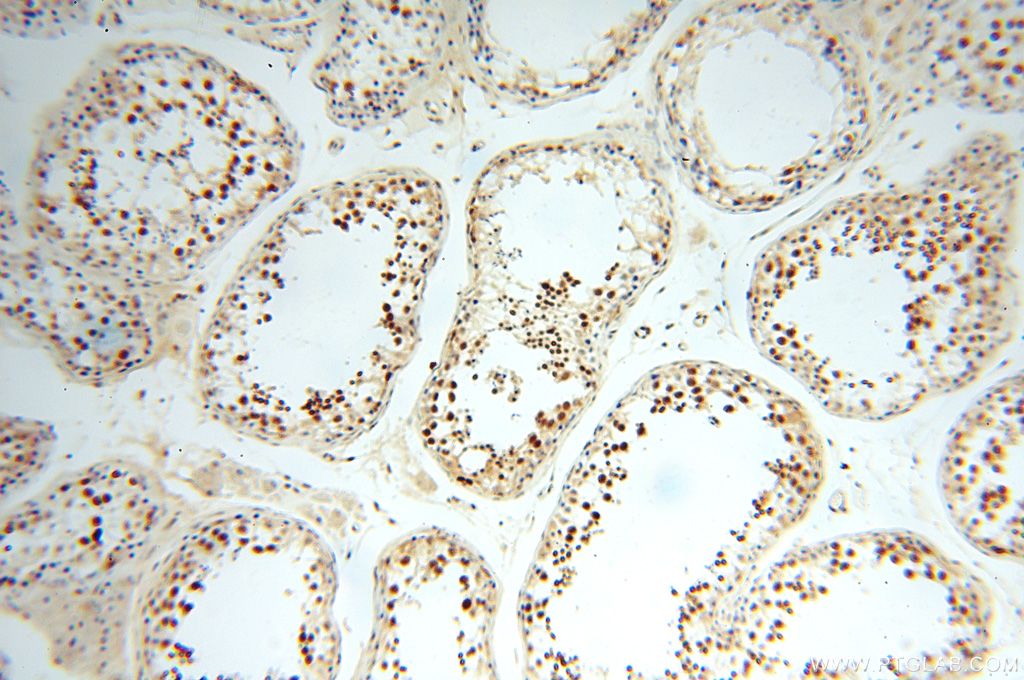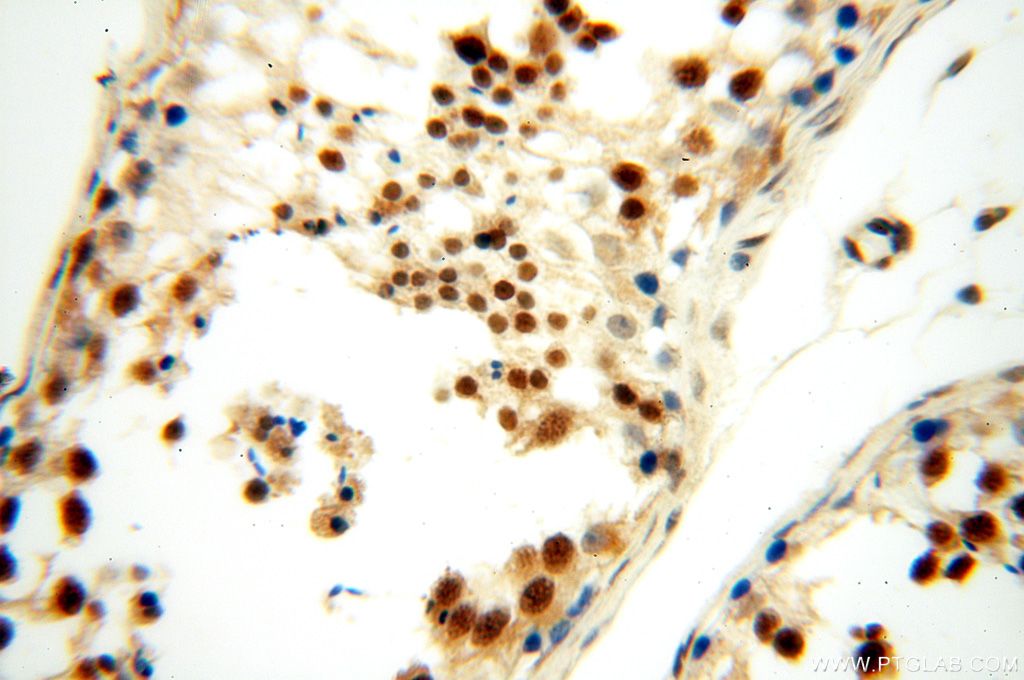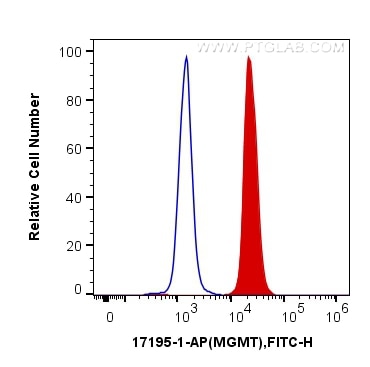- Phare
- Validé par KD/KO
Anticorps Polyclonal de lapin anti-MGMT
MGMT Polyclonal Antibody for WB, IHC, FC (Intra), IP, ELISA
Hôte / Isotype
Lapin / IgG
Réactivité testée
Humain
Applications
WB, IHC, FC (Intra), IP, CoIP, ELISA, IF
Conjugaison
Non conjugué
N° de cat : 17195-1-AP
Synonymes
Galerie de données de validation
Applications testées
| Résultats positifs en WB | cellules Jurkat, cellules HeLa, cellules MCF-7, cellules Raji |
| Résultats positifs en IP | cellules Jurkat |
| Résultats positifs en IHC | tissu de cancer du foie humain, tissu placentaire humain, tissu splénique humain, tissu testiculaire humain il est suggéré de démasquer l'antigène avec un tampon de TE buffer pH 9.0; (*) À défaut, 'le démasquage de l'antigène peut être 'effectué avec un tampon citrate pH 6,0. |
| Résultats positifs en FC (Intra) | cellules Jurkat, |
Dilution recommandée
| Application | Dilution |
|---|---|
| Western Blot (WB) | WB : 1:1000-1:6000 |
| Immunoprécipitation (IP) | IP : 0.5-4.0 ug for 1.0-3.0 mg of total protein lysate |
| Immunohistochimie (IHC) | IHC : 1:50-1:500 |
| Flow Cytometry (FC) (INTRA) | FC (INTRA) : 0.20 ug per 10^6 cells in a 100 µl suspension |
| It is recommended that this reagent should be titrated in each testing system to obtain optimal results. | |
| Sample-dependent, check data in validation data gallery | |
Applications publiées
| WB | See 17 publications below |
| IHC | See 2 publications below |
| IF | See 1 publications below |
| CoIP | See 1 publications below |
Informations sur le produit
17195-1-AP cible MGMT dans les applications de WB, IHC, FC (Intra), IP, CoIP, ELISA, IF et montre une réactivité avec des échantillons Humain
| Réactivité | Humain |
| Réactivité citée | Humain |
| Hôte / Isotype | Lapin / IgG |
| Clonalité | Polyclonal |
| Type | Anticorps |
| Immunogène | MGMT Protéine recombinante Ag9996 |
| Nom complet | O-6-methylguanine-DNA methyltransferase |
| Masse moléculaire calculée | 22 kDa |
| Poids moléculaire observé | 22 kDa |
| Numéro d’acquisition GenBank | BC000824 |
| Symbole du gène | MGMT |
| Identification du gène (NCBI) | 4255 |
| Conjugaison | Non conjugué |
| Forme | Liquide |
| Méthode de purification | Purification par affinité contre l'antigène |
| Tampon de stockage | PBS avec azoture de sodium à 0,02 % et glycérol à 50 % pH 7,3 |
| Conditions de stockage | Stocker à -20°C. Stable pendant un an après l'expédition. L'aliquotage n'est pas nécessaire pour le stockage à -20oC Les 20ul contiennent 0,1% de BSA. |
Informations générales
MGMT is the primary vehicle for cellular removal of alkyl lesions from the O-6 position of guanine and the O-4 position of thymine. While key to the maintenance of genomic integrity, MGMT also removes damage induced by alkylating chemotherapies, inhibiting the efficacy of cancer treatment [PMID:23065697].MGMT is the primary mechanism for the removal of alkylation damage from the O-6 position of guanine [PMID: 17482892]. The O-6 position of guanine is one of several positions in DNA bases to which alkyl groups are attached in SN1 alkylation reactions, and this repair has been well-characterized in mammalian cells and via MGMT homologs in bacteria and Archaea.[PMID: 10767620]
Protocole
| Product Specific Protocols | |
|---|---|
| WB protocol for MGMT antibody 17195-1-AP | Download protocol |
| IHC protocol for MGMT antibody 17195-1-AP | Download protocol |
| IP protocol for MGMT antibody 17195-1-AP | Download protocol |
| Standard Protocols | |
|---|---|
| Click here to view our Standard Protocols |
Publications
| Species | Application | Title |
|---|---|---|
Cell Res DNA damage triggers tubular endoplasmic reticulum extension to promote apoptosis by facilitating ER-mitochondria signaling. | ||
Nucleic Acids Res KDM6B promotes PARthanatos via suppression of O6-methylguanine DNA methyltransferase repair and sustained checkpoint response. | ||
Clin Transl Med LncRNA BC promotes lung adenocarcinoma progression by modulating IMPAD1 alternative splicing | ||
Oncogene GBP3 promotes glioblastoma resistance to temozolomide by enhancing DNA damage repair. | ||
Oncogenesis GSK3β palmitoylation mediated by ZDHHC4 promotes tumorigenicity of glioblastoma stem cells in temozolomide-resistant glioblastoma through the EZH2-STAT3 axis. | ||
Arch Toxicol Global and MGMT promoter hypomethylation independently associated with genomic instability of lymphocytes in subjects exposed to high-dose polycyclic aromatic hydrocarbon. |
